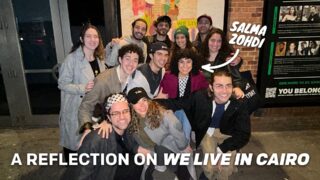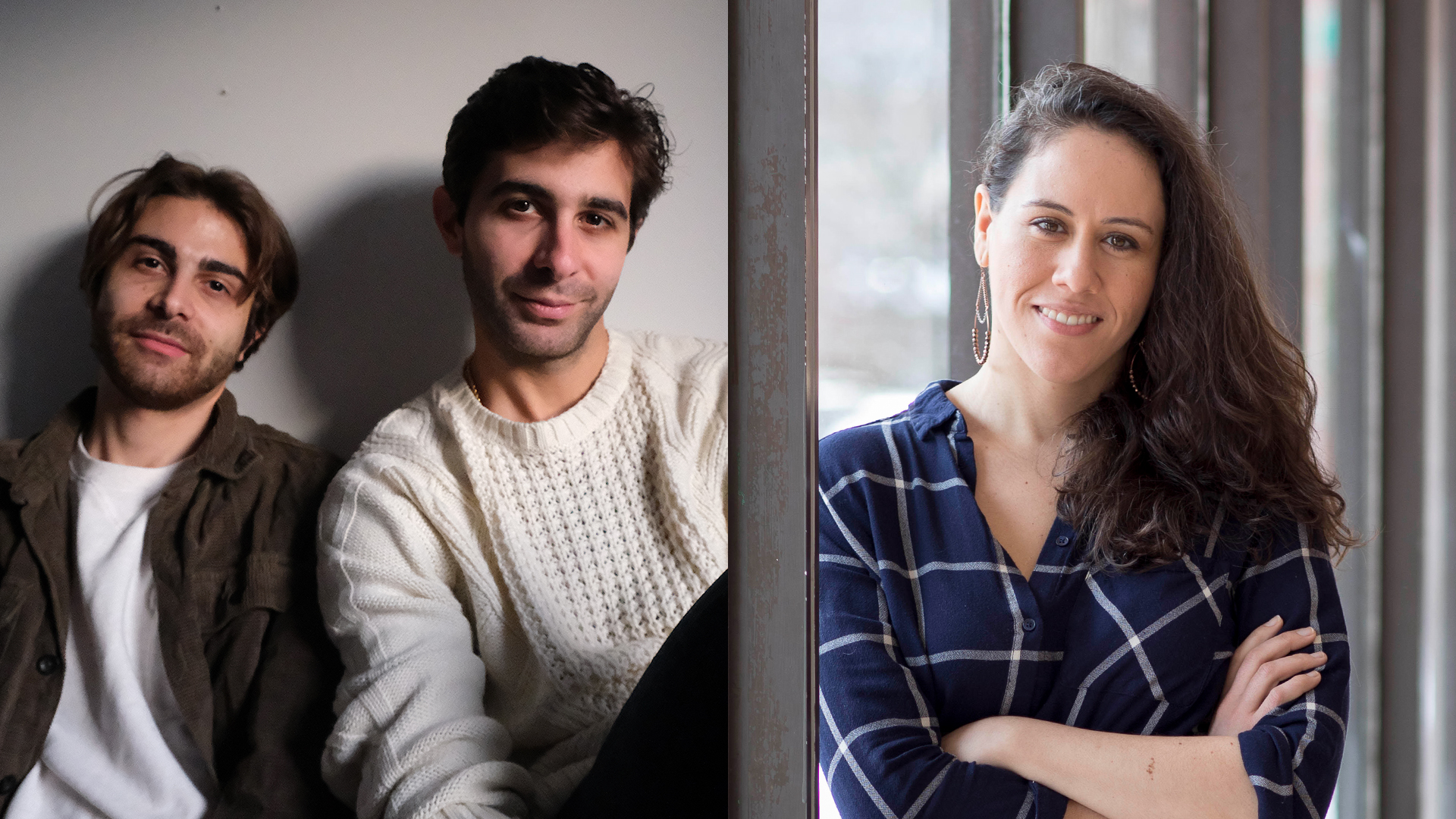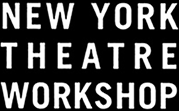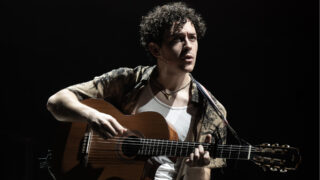


We recently sat down with Daniel & Patrick Lazour and director Taibi Magar to talk about We Live in Cairo, a project that’s been ten years in the making and will begin previews on October 9, 2024.
Could you talk a little bit about your respective histories with the Workshop?
TAIBI: I was here last year. Yay! Genuinely so, so happy to be back. Rent was the first show I ever saw on Broadway. And I sang it in my bedroom for many years over. So that’s my first real encounter. But we started working with Aaron [Malkin, Associate Artistic Director, Theatre & Productions at NYTW] and the Workshop in June of 2017, and we’ve been to Adelphi and Dartmouth, et cetera. So, it feels amazing to be back. In some ways, it’s home for We Live in Cairo.
PATRICK: We first started with the Workshop with Aaron in 2014 when we had a meeting with him at Amy’s Bread with Yang-Yang [Chen, Senior Associate Producer]. And then from there we’ve had a long history with New York Theatre Workshop. We had a workshop here, and then we went to Adelphi and Dartmouth. New York Theatre Workshop feels like an artistic home for us. It’s a real honor that this is happening.
DANIEL: We’ve always sort of pictured it here. And that’s truly no exaggeration. I remember Patrick coming back from seeing that Burt Bacharach show, What’s It All About?, saying like, “oh, they had all these rugs,” and that being very inspiring.
Could you talk about the genesis of the piece and about the three of you as collaborators?
PATRICK: It started with a photo that I saw of 10 or so revolutionaries/activists seven floors above Tahrir Square during the height of the Revolution. So, there are millions of people in a square below them, and they’re all uploading photos and videos. There’s a Coke can on the table, there’s a toilet paper roll (for some reason) on the table, and they’re all there. And there’s so much energy and vivacity and like, sort of revolutionary joy within the photo. I saw that in a class of mine at Boston College, and that was really the thing that kickstarted the entire journey of this. From there, we wrote a draft of the show. Fast forward to 2017, Taibi came on board, and we went to Cairo together. The show forms the spine of our artistic lives and our upbringing as artists and as writers. There’s so much to say about the journey but that really was the impetus of the show. And, also, you know, we are all Arab American people, so we have some touchstones in the culture. And I think we all have this desire to explore more. For Daniel and me, I think it was the music; for Taibi, I think it was your dad and your family in Egypt. So, it’s just been a very soul heavy project for us.
DANIEL: We were fascinated with the idea of these really young people, and that fascination has carried us through today. But this show has transformed so much. Taibi really whipped the show into shape. The larger thematic questions came into view when Taibi came on board.
TAIBI: And the origin of our relationship is that we shared an agent, though he didn’t introduce us! Daniel heard my name and then arranged, through our agent, to meet for the first time. And that was a long time ago, and they’ve become as much of family as one can be. They sang at my wedding. We are in deep collaboration, and they are trusted lifelong friends.
PATRICK: It’s crazy! It’s a really weird relationship. It’s an amazing relationship but – Taibi, you’re both like a sister to us, and like a mentor, and also an equal collaborator. It holds so many things. It’s really special.
TAIBI: One of the great joys of working on it is watching these two grow up over time. Daniel was a baby when he started writing this! And to watch their writing come into fruition has just been one of the greatest gifts.
Are there things you hope the audience leaves with?
PATRICK: I want people, when they leave the show, to really think about what activism is and what activism means to them. I really think the show can speak to what our relationship with activism is in this country, especially now as protesting is a part of our culture and part of our lives – it always has been. It’s becoming more at the surface for a lot of people. And like, what is our relationship to fear and activism? I think that’s interesting. And that’s part of what We Live in Cairo deals with.
TAIBI: When we went to Egypt, we met with Ahmed El Attar (founder of Studio Emad Eddin and lead organizer of Cairo’s Downtown Contemporary Arts Festival). We confessed to him a sort of sensitivity and cautiousness about, you know, we’re Arab, but we’re Westerners, and we don’t want to be those colonizers, and how does he feel about us telling this story? And he said that it’s not just their story. Egypt’s revolution is the world’s story. There’s this great writer who wrote a book about the Egyptian Revolution – Thanassis Cambanis (Once Upon a Revolution: An Egyptian Story). In his introduction, he says that the lesson in Tahrir is that history still retains the capacity for surprise. This articulated something I’ve always felt about this piece, which is that history is still being written every day. And that feeling has a lot to do with the design choices. In graduate school, I remember reading someone’s work on genocide in Africa that said that imagination is the key to social justice, because if you can’t imagine it, you can’t fight for it. And I’ve held on to that as why theater is important. It teaches us the skill of imagination. History is just waiting; we just have to look up to make it.
You might also like:
Explore more
Categories: 2024/25 Season and Artist Interviews. Tags: Taibi Magar, The Lazours, and We Live in Cairo.

 My Cart
My Cart My Account
My Account Gift Certificates
Gift Certificates Find Us
Find Us






